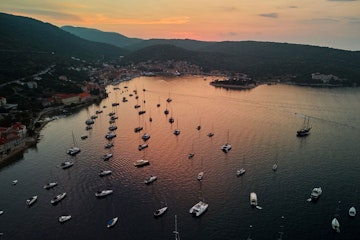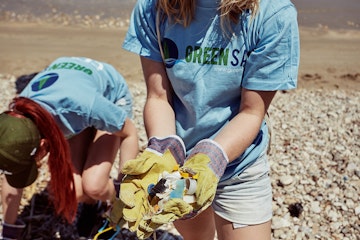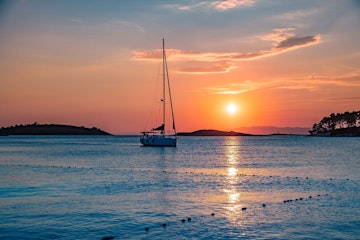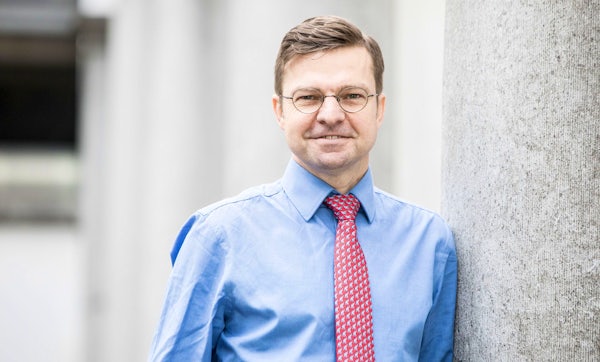How do we secure a more sustainable world that can be enjoyed by future generations? Green Sail recently had the pleasure of discussing this interesting topic with Wayne Visser; Professor of Integrated Value and Holder of the Chair in Sustainable Transformation (supported by BASF, Port of Antwerp and Randstad) at Antwerp Management School. Wayne Visser is also the Founder of CSR International and Director of Kaleidoscope Futures and Fellow at the University of Cambridge Institute for Sustainability Leadership.
Focused on sustainable development, corporate social responsibility and creating integrated value, Wayne has offered us his valuable insight into the importance of environmental sustainability in relation to tourism and nautical companies in general. Read about the biggest challenges that we currently face and future issues for sustainable tourism in Europe in this inspiring interview below.
Q: When we talk about sustainability, what do you think is the biggest issue for the world today?
A: If I had to pick one, it is our malignant global economic system. We have a system that is, by design, wreaking havoc with society and the environment. For example, it is escalating climate change, inequality and ecocide. We have to:
- Rapidly decarbonise the economy, before we trigger irreversible tipping points in the climate system.
- Address income gaps, including the gender pay gap which is increasing ('business as usual' projections are that it will take more than 200 years to close the gap).
- Reverse the sixth mass extinction, where we have wiped out around two thirds of vertebrate populations since 1970 and we show no signs of slowing down our destruction.
Q: What do you think is the main trigger for a company to start developing its CSR?
A: Overall, it is shifting societal norms. This can manifest in different ways. I call it the 7Rs. Investment in sustainability: 1. lowers Risk (especially by better value chain and stakeholder management), 2. improves Reputation (the intangible asset of brand equity), 3. fosters Resilience (the ability to survive system shocks such as climate events), 4. increases Resource efficiency (thus saving costs through less water, energy and waste), 5, anticipates Regulation (therefore adapting and avoiding fines and penalties), 6. supports Recruitment (and retention of talent), and 7. increases Revenues (from growth markets).
Q: How do different environmental sustainability issues affect companies today? What about touristic and nautical companies?
A: Resource prices and supplies are volatile, while demand and costs continue to grow. Therefore, getting control of the value chain, using tactics such as adopting circular economy approaches, is one proactive response. For tourism and marine sectors, reducing the carbon footprint of travel and operations, as well as tacking issues like plastic pollution, has become critical.

Q: The adoption rate of sustainable practices has picked up in recent years, however, do you think the companies in Europe are making necessary changes fast enough?
A: No one anywhere is moving fast enough, compared to the scale, severity and urgency of the problems. Nevertheless, there is momentum building in some areas that are moving fast, such as the switch to renewable energy, electric vehicles, plant-based diets and sustainable plastics.
Q: Do you think that our ‘throw away’ culture has started to change positively?
A: We are still high consuming and extremely wasteful, mostly because resources are cheap (we don't count their true cost, in terms of impact on society and the environment) and brands keep telling us that we can buy happiness. But progress on the circular and sharing economies shows positive signs of change.

Q: We know it is often challenging for companies to appreciate the importance of our environment. Financially speaking, do you think that being a sustainability company will become less difficult to justify in the future?
A: Yes, the business case for sustainable investments and actions has become stronger year by year. Early adopters like Tesla and Unilever will benefit the most, but as sustainable technologies scale, customers become more aware and eco-taxes start to reveal the true cost of products, being sustainable will be as easy to justify as looking after employees is today.
Q: What do you think are future challenges for sustainable tourism in Europe?
A: Many sites in Europe will face the issue of tourism carrying capacity, i.e. what is the maximum number of tourists that each site can take, before the tourists start eroding or destroying what they have come to see. The carbon impacts of travel, especially flying, will also be a big challenge. High speed rail, hyperloops, biofuels and electric transport can help to some extent.
Q: Do you know some good examples of companies that have addressed sustainable operations well?
A: A good list are the companies ranked top in the annual survey of sustainability experts by Globescan and SustainAbility. In 2019, this included Unilever, Patagonia, IKEA, Interface, Natura, Danone, Nestle, Marks & Spencer and BASF. None of these are perfect, but they are all adopting ambitious, science-based goals to make a positive impact.
Q: One of Green Sail’s objectives is to join forces with the nautical sector and act together to reduce negative impacts on the environment. What is your advice for our partners?
A: I believe the time is right. Many in the maritime and ports sector are looking for solutions and wanting to make strategic shifts towards sustainable development. A group like the World Ports Sustainability Program or the Ocean Race Summit are organisations that have a clear mission to reduce negative impacts of the sector. But partnerships are tough. Better to have fewer partners with long-term commitment to work together than many superficial, short-term partnerships.
Q: In one of your interviews you said: ''Working on sustainability, which is one form of working on solutions to make things better, is extremely motivating. And the motivation is also linked to hope." What do you think should be our biggest motivation to inspire a more sustainable world?
A: There is psychology research to support this, e.g. from Simon Fraser University, La Trobe University and London School of Economics and Political Science. They all show that life satisfaction and purpose is enhanced by efforts on sustainability. And the interesting thing is the bigger the sacrifice, the bigger the return on wellbeing. So in fact, while we do it for others, we also do it because it makes our lives more meaningful.

